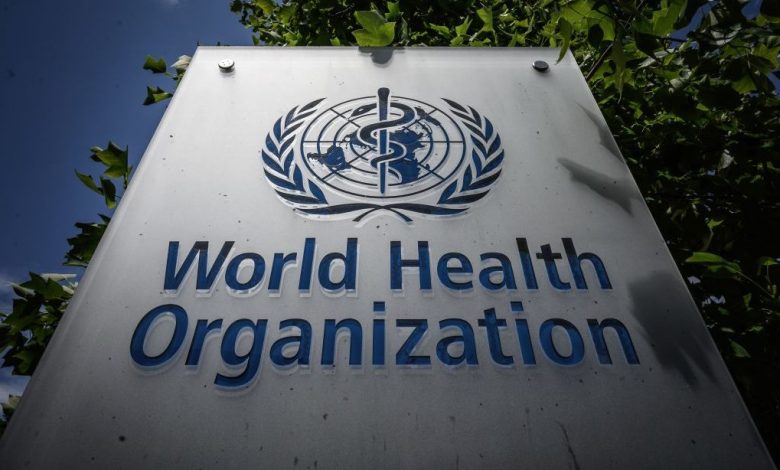
Introduction
In the modern world, human prosperity and sustainable development are based on good health. The World Health Organization (WHO) has long been a leader in global health, promoting all-encompassing laws and programs that promote health everywhere. This article explores WHO’s vision for a healthier future, including its innovative programs, strategic goals, and important role in influencing global health policies.
WHO’s Strategic Goals for Global Health
Universal Health Coverage
The realization of universal health coverage is one of WHO’s main priorities (UHC). UHC makes ensuring that no community or individual faces financial hardship in accessing the healthcare they require. This covers all necessary services, such as palliative care, prevention, treatment, and rehabilitation, in addition to health promotion. The WHO’s plan places a strong emphasis on the necessity of affordable, high-quality healthcare services that are funded in a way that shields individuals from financial risk.
Health Emergencies Preparedness and Response
Ensuring strong readiness for and response to health emergencies is part of WHO’s mandate. This objective includes a broad range of initiatives, such as capacity building, assistance for nations experiencing crises, and outbreak identification and response. In order to reduce the impact of outbreaks, natural disasters, and other health emergencies on the general population and shield individuals from financial risk, the World Health Organization’s Health Emergencies Programme plays a crucial role in coordinating international efforts to battle these events.
Promoting Health and Well-Being
Encouraging health throughout one’s life is an additional crucial objective. WHO promotes practices and policies that enhance health outcomes across all life stages, from antenatal care to old age. This entails tackling the socioeconomic determinants of health, encouraging active living, and guaranteeing that people have access to the healthcare they require. The goal of WHO’s efforts in this field is to create surroundings that promote everyone’s health and well-being.
Innovative Programs and Initiatives
Global Health Observatory (GHO)
The WHO’s platform for data and analysis to track the state of global health is called the Global Health Observatory. GHO provides a thorough and in-depth summary of important health indicators, enabling stakeholders to make decisions based on precise, current data. This project is a prime example of WHO’s dedication to openness and data-driven policymaking.
Health Workforce Support and Development
Effective health systems require a robust staff in the medical field. The primary goals of WHO’s initiatives are to retain, support, and train health workers—especially those working in underprivileged communities. Global health workers’ availability, caliber, and effectiveness are being improved through initiatives like the Global Health Workforce Alliance.
Tackling Non-Communicable Diseases (NCDs)
Major global health issues are non-communicable diseases like diabetes, cancer, and heart disease. The WHO’s all-encompassing strategy to fight NCDs encourages physical exercise, a balanced diet, and a decrease in alcohol and tobacco use. Through concerted efforts and targeted interventions, countries can lower the burden of these diseases by following the guidelines provided by the Global Action Plan for the Prevention and Control of NCDs.
Role in Global Health Policy
Setting International Health Standards
When it comes to establishing global health standards and norms, WHO is essential. By assisting in ensuring the efficacy and safety of medications, vaccinations, and other health items, these guidelines promote the widespread use and adoption of these products. The WHO’s recommendations also influence national health policies and procedures, promoting uniformity and excellence in the provision of healthcare across borders.
Facilitating Global Health Partnerships
In order to address global health concerns, collaboration is essential. To further its health agenda, WHO collaborates with a wide range of parties, including governments, non-governmental organizations, and the commercial sector. By utilizing the assets and skills of several parties, these collaborations foster synergies and increase the effectiveness of health interventions.
Advocating for Health Equity
WHO’s mission is centered on health equity. The group promotes laws that deal with health disparities and guarantee that everyone has the chance to reach their utmost degree of health. This entails addressing the underlying factors that contribute to health disparities, such as access to care, education, and poverty, as well as advocating for inclusive policies that benefit all facets of society.
Conclusion
The World Health Organization has a broad and multidimensional vision for a healthy future that addresses every health issue that the world community faces. WHO is committed to creating a world that is healthier and more just through its strategic goals, creative programs, and significant influence on global health policy. In order to fulfill this vision and guarantee a better, healthier future for everybody, we will need the ongoing assistance and cooperation of global stakeholders as we proceed.Supporting the WHO’s efforts and adopting its all-encompassing strategy will enable us to work together to create a more resilient and healthy global community.



